The views expressed in our content reflect individual perspectives and do not represent the authoritative views of the Baha'i Faith.
After a Black History Month marked by new momentum in the struggle for racial justice, and during these 19 days of the Baha’i Fast, I’m reflecting on my own personal Black history growing up in racially segregated Nashville, Tennessee.
RELATED: How Interracial Friendships Can Lead To Racial Healing
Somewhat like Forrest Gump, important episodes in my life were intertwined with significant events in Nashville’s civil rights movement. But unlike Forrest, I did not witness most of those events directly; they happened in the background, unappreciated at the time they were occurring.
Baha’is believe ours is an “ever-advancing civilization.” But as we advance, we must simultaneously witness — in the words of Shoghi Effendi, the Guardian of the Baha’i Faith — “oppression, bloodshed, and ruin” being rolled up and “a justice, a unity, a peace, a culture, such as no age has ever seen” slowly being “spread out in its stead.”
I was born two years after the Supreme Court ruling in Brown v Board of Education made segregated schools unconstitutional. As my parents welcomed me into the family, the Nashville Board of Education was putting the final touches on a school desegregation plan. This plan would allow Black first graders who happened to live in a white part of town attend what were then all-white neighborhood schools, rather than go to a Black school outside their neighborhoods. Each subsequent year, another grade would be added to this plan, meaning legally segregated schools would technically become a thing of the past the year I entered junior high school — but practically so only for the small number of children who lived in integrated neighborhoods.
As I neared my first birthday and the first Black students began attending formerly all-white schools, one of those schools was bombed, just after midnight. The tragedy made headlines, but it did not stop the slow process of integration.
That same year, my parents bought a house in an all-Black neighborhood, so I began my education in an all-Black school, with all-Black teachers — a situation created by Jim Crow laws, tradition, and the slow pace of change. But as Nikki Giovanni said in her poem, “Nikki-Rosa,” those early years for me were “quite happy.”
RELATED: Amanda Gorman and Dr. King: Climbing Toward True Equality
My segregated neighborhood and schools were part of a segregated community with a Black-owned or Black-managed movie theater, bowling alley, library, park, swimming pool, golf course, radio station, medical school, and hospital (where I was born and my parents worked), two Black colleges, a great many Black churches and a large number of Black eateries and businesses on Jefferson Street, the historic center of Nashville’s Black commercial district. In the spring of the year I turned three, the late civil rights activist and Georgia congressman John Lewis helped lead successful sit-ins to integrate lunch counters in downtown Nashville. A few years later, when I shopped downtown with my grandmother and she treated me to my first cake donut at a coffee shop, I was unaware of this recent history, and I was “quite happy.”
RELATED: Remembering John Lewis: A Life of Courage and Service
The year I entered tenth grade, a federal court sided with those urging the use of busing and ordered children to be sent to schools outside their neighborhoods to achieve racial integration. My world and my sense of who I was would be forever changed. I would not attend Pearl High School — my parents’ alma mater and the only high school available to Black students when my mother and father were teenagers — nor North High School, the predominantly Black neighborhood high school from which my older brother had just graduated. For the first time in my life, I would have day-to-day contact with white people.
To be fair, changes were already disrupting my predominantly Black world. The successes of the civil rights movement meant that Black people had more options for their lives. My parents no longer worked in the Black hospital in which I was born, having taken better-paying jobs outside of the Black community. Many middle-class Black families had left my neighborhood now that they could live in the nicer and whiter suburbs — with negative consequences for North Nashville’s aesthetics, personal safety, and school quality. Although Nashville did not experience the level of hostility and drama of cities like Boston and Louisville, there was disruption: protests, boycotts, white flight, Black resistance, long bus rides and culture shock. I was no longer “quite happy.”
My world was becoming bigger than the blocks encompassing North Nashville, literally, emotionally, and spiritually. I was challenged to think about who I was as a Black person — did I always sit at the Black table in the cafeteria? Did I make white friends, go to their houses, eat in their restaurants, listen to their music? I was having an identity crisis.
In a 2019 letter to the worldwide Baha’i community, the Universal House of Justice, the international governing body of the Baha’i Faith, said that the whole of “Humanity is gripped by a crisis of identity.” Like me 45 years ago, the tumult of our present time has many individuals struggling “to define themselves, their place in the world, and how they should act.” During the time I traveled to that far away high school on a bus, I felt that some pieces of me were being “rolled up” and new bits were being “spread out” before me. I had to take hold of them and make them part of who I would become.
Although I had not realized it, before busing, my choices had been limited. Now, maybe I could like Carole King as well as Stevie Wonder. Maybe I could eat tofu as well as barbecue. Maybe I could go to the predominantly white college down the highway instead of the Black one down the street. Maybe I could join a religion that saw all people as belonging to one family.
I did all those things. And that last one ended my identity crisis with the phrase “unity in diversity.”
The Baha’i conception of unity in diversity eschews uniformity both within and outside of the various racial, national and ethnic identities created by human history. Baha’is and their friends are creating both “a new world order” and a “new race of men” (and women) to populate it. In 1984, the Universal House of Justice wrote:
a principal purpose for the coming of the Manifestation is to transform the character of individuals and, through them, the character of society as a whole.
Rather than continuing this “fragmented conception of human identity,” Baha’is are sharing with others the idea that it is “through love for all people, and by subordinating lesser loyalties to the best interests of humankind, that the unity of the world can be realized and the infinite expressions of human diversity find their highest fulfilment.”
I realized that as I approached adulthood, I could take advantage of the new world that was opening to me, while at the same time holding onto the child who had been nurtured in the warmth of a segregated Black community.
Later, after having gone to that predominantly white university and settled into a career in a predominantly white industry, I was asked by a white friend who was adopting a Black child how she and her husband could raise their child with a solid, healthy Black identity. I told her that this was a question I also would have to answer for myself and my own children. My Black identity had been given to me without much effort on my part, but that world had been rolled up and no longer existed.
With the help of the Baha’i community, I tried to build an environment for my children based on an understanding of the oneness of humanity, the “pivot round which all the teachings of Baha’u’llah revolve.” The circumstances of my children’s lives have been different from mine and from that of their white father. The larger world has benefited from that.
The struggle to integrate the public schools in Nashville and other cities more than 45 years ago was a small chapter in the goal of creating a new social order characterized by unity. The world continues to suffer because we have not yet reached that goal. “No matter how bleak conditions may appear at any given time, no matter how dismal the immediate prospects for bringing about unity, there is no cause for despair. The distressing state of the world can only spur us to redouble our commitment to constructive action,” the Universal House of Justice wrote. We will, though our efforts to build communities based on the oneness of humanity, foster “unity, by harmonizing disparate elements and nurturing in every heart a selfless love for humankind…”
Armed with that understanding and the life I have created in my efforts to further the cause of unity, I am now once again “quite happy.”


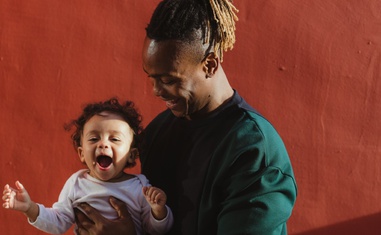

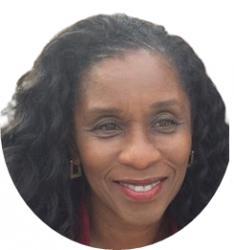
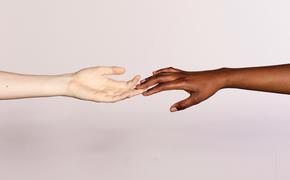
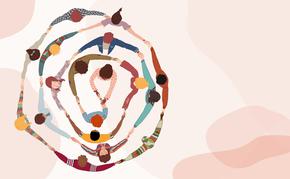
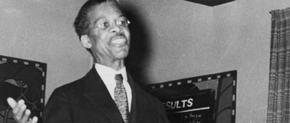









Comments
Sign in or create an account
Continue with Facebookor